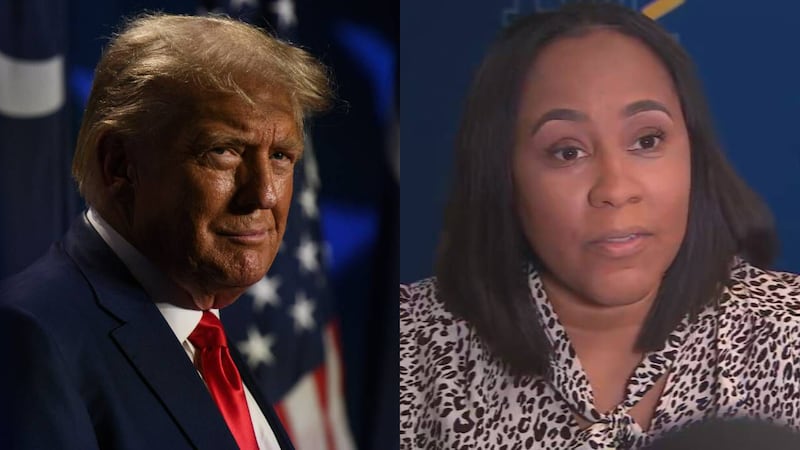ATLANTA — Channel 2 Action News has learned a Fulton County grand jury could begin hearing evidence as soon as next week in the election interference case involving former President Donald Trump here in Georgia.
There are currently two grand juries that have been empaneled for this term and have already been hearing regular cases on the docket.
Fulton County District Attorney Fani Willis and her assistants will present evidence to one of those grand juries next week, which will then decide if that evidence is enough to move the case forward.
“An indictment means that the grand jury thinks there’s enough evidence to go before a more traditional jury,” Emory University law professor Fred Smith said.
RELATED STORIES:
- ‘They’re very grotesque’ Fulton DA opens up about threats made against her in Trump election probe
- Trump pleads not guilty, charged with efforts to overturn the 2020 presidential election
- Main street in front of Fulton County courthouse to shut down next week
- TIMELINE: Fulton County grand jury investigation into potential interference in Georgia elections
- Grand juries seated in case to consider charges against former President Donald Trump
- Grand jury selection to start in Georgia election interference case tied to Trump
Smith told Channel 2′s Richard Elliot that when a grand jury is presented with a case, it’s a one-sided proceeding with only the prosecution presenting evidence and witnesses.
In this case, some of those witnesses include former Lt. Gov. Geoff Duncan and former state Sen. Jen Jordan, both of whom have been subpoenaed.
Attorneys for Trump and his associates will not be in the room and, under state law, will not be able to present their side.
That, Smith said, comes only after a potential indictment during a trial.
“If he is in fact indicted, he will have an opportunity under the Constitution to present his own defense,” Smith said.
The grand jury is just the first step in a long legal process leading to a trial.
Smith reminds us that an indictment requires a much lower threshold than a conviction.
“It doesn’t mean that one is necessarily guilty. Anyone who’s indicted, they can continue to have the presumption of innocence unless and until the government meets their burden in a court of law,” Smith said.
RELATED NEWS:
©2023 Cox Media Group








